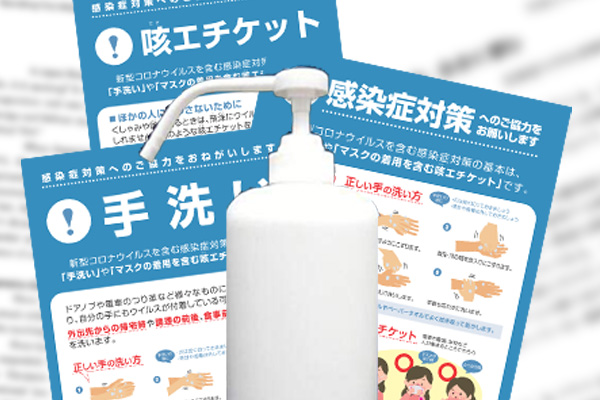https://en.jinf.jp/weekly/archives/6835
【#657】Proposal for New Coronavirus Infection Prevention
Tadashi Narabayashi / 2020.02.19 (Wed)
February 17, 2020
A nuclear power plant that meets Japan’s new safety standards, known as the toughest in the world, is equipped with a filter vent to filter out radioactive materials in the event of accident and with an air shelter to provide air purified through filters to prevent residents’ exposure to radiation. Safety measures have been taken to effectively prevent any significant radioactive pollution. As an engineer promoting nuclear power plant safety measures, I would like to propose an effective measure to prevent the spread of new coronavirus pneumonia, influenza and other infectious diseases threatening human health and lives.
Pay attention to hypochlorous acid water
To prevent the spread of the new coronavirus infection, measures must be taken for railways, subways, buses and other highly efficient mass transit systems. The new coronaviruses covered by envelope membranes have many spikes looking like golf tees. They cling to cells in the throat or eye mucous membrane, create holes in the cells and inject ribonucleic acid genes into the cells. They grow by taking over the cells’ energy and protein-synthesizing capabilities and alter the cells to develop pneumonia.
Coronaviruses and influenza viruses are transmitted from humans to humans mainly through droplets from infected persons. A cough produces 20,000 droplets. A sneeze generates 100,000 droplets. Coronavirus infection risks are higher in crowded trains, elevators, cruise ships, hospital waiting rooms and other places where people have close contact with each other. As coronaviruses are left with droplets dried, viruses are deactivated with their spikes destroyed.
The website of the Ministry of Labor, Health and Welfare says that rubbing alcohol (70%) is useful for disinfecting hand and other skin areas and that sodium hypochlorite (0.1%) is effective for sanitizing doorknob and other surfaces. Some documents point out that hypochlorous acid water into which salt water is electrolyzed would be effective for disinfection. This is because hypochlorous acid generated in white blood cells (neutrophils) can kill bacteria. Some data indicate that hypochlorous acid water could deactivate or destroy viruses in a few minutes.
Using air-conditioning equipment
Dilute solution of hypochlorous acid water may be sprayed on air-conditioning equipment or put into humidifier tanks to circulate in transportation systems and office buildings to effectively prevent droplet infection. If hypochlorous acid solution had been sprayed on air-conditioning equipment of the controversial cruise ship known for massive new coronavirus infection, any wide infection could have been prevented. Hypochlorous acid water and spray bottles are available for Internet sales. Ultrasonic humidifiers of PET bottle size available for general sales may be used for taxis and sightseeing buses to prevent infection. They may be effective for preventing influenza viruses as well as coronaviruses. Indispensable for the utilization of air-conditioning equipment and small humidifiers would be proactive support from the Ministry of Economy, Trade and Industry and the Ministry of Land, Infrastructure, Transport and Tourism. The government is required to take swift actions to protect people from infectious diseases.
Some say the new coronavirus infection is expected to slow down as temperatures rise. Given that more than 70 people have been infected with the new coronavirus in Singapore where temperatures now are around 28 degrees Celsius, however, we cannot be optimistic.
Tadashi Narabayashi is a specially appointed professor at the Tokyo Institute of Technology and a director at the Japan Institute for National Fundamentals.


No comments:
Post a Comment